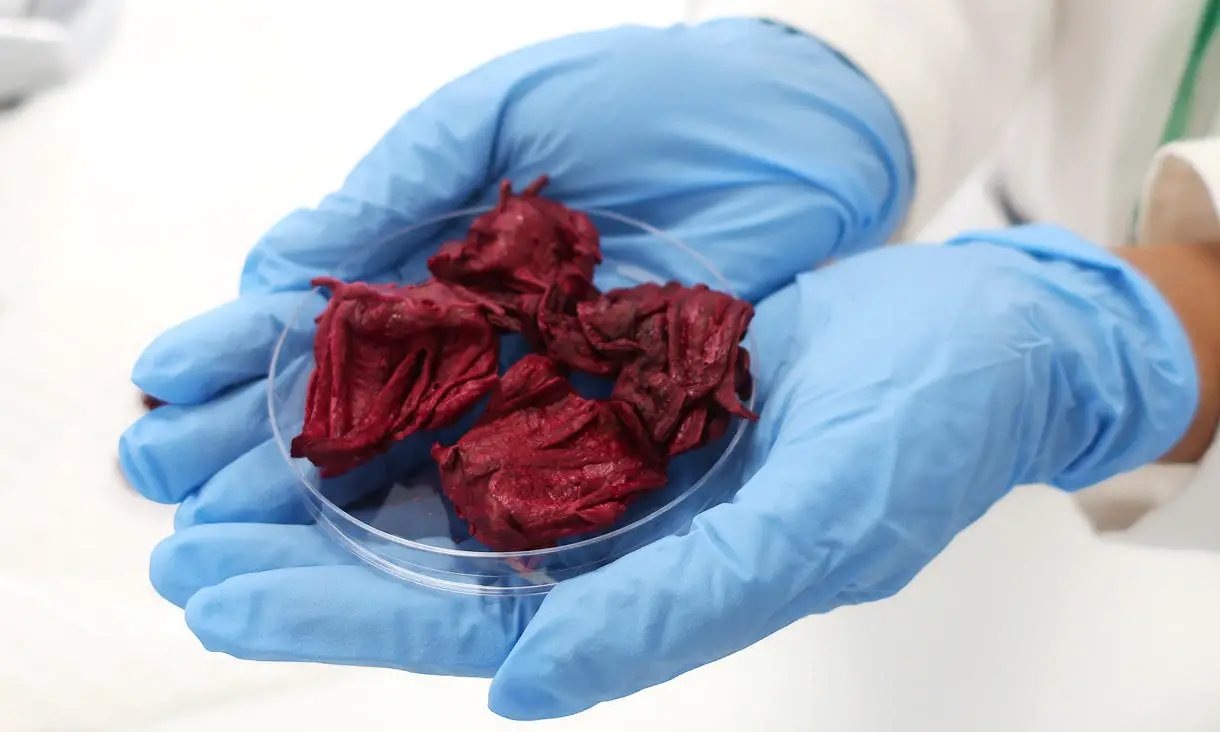Summary of A Hero Ingredient To Help Manage Obesity:
Phenolic extracts and hydroxy citric acid found in the roselle plant have anti-obesity properties, according to a study by Ph.D. candidate Manisha Singh at RMIT University. In the study, human stem cells were treated with extracts and turned into fat cells. Cells treated with phenolic extracts had 95% less fat than control cells. The research is the first to use human fat cells to test the impacts of roselle’s phenolic extracts and hydroxy citric acid. The study results could lead to the development of healthy food products that interfere with forming of fat cells without negative side effects.
*****
New research shows anti-obesity properties found in the roselle plant extract.
The availabilities of fat cells inside the body contribute to obesity. A study conducted at RMIT University has found that the roselle plant may offer an alternative to current weight management medications. The study, led by Ph.D. candidate Manisha Singh, explored the potential of phenolic extracts and hydroxy citric acid found in the hardy roselle plant to prevent the creation of fat cells. Singh’s research marked the first time human fat cells were used to test the impact of roselle phenolic extracts and hydroxy citric acid. The a
Phenolic extracts inhibit fat cell growth.
According to the study results, cells treated with phenolic extracts were 95% less fatty than control cells. Singh believes that the phenolic extracts from the roselle could create a healthy food product that effectively interferes with forming fat cells – something current weight management medication struggles to do without triggering negative side effects such as high blood pressure and impact on the kidney and liver. The polyphenols found in the roselle plant’s extract could help inhibit digestive enzymes called lipase that break down fats into small fractions so the body absorbs them through the intestine.
Encapsulation of the roselle phenolic extracts
While the roselle plant can be farmed in large quantities, scientists are now considering encapsulating it into tiny beads, extending its shelf life, protecting it from oxidation, and making it easier to consume. These little beads could create a refreshing drink, a potential and healthier alternative to existing weight management medications.
Roselle could have a future in Australia’s health food industry.
Professor Benu Adhikari, Singh’s Ph.D. supervisor, predicts that the roselle plant will be important in Australia’s health food industry due to its hardiness, disease resistance, adaptability, and growing characteristics. Freeze-dried roselle flowers can be crushed into a powder, encapsulated, and made into a drink, making them a popular alternative to protein bars, weight loss pills, and other weight management medication. Singh sums up the potential that their research has found: “Because these polyphenolic compounds are plant-derived and can be consumed, there should be fewer or no side effects.”



Comments are closed